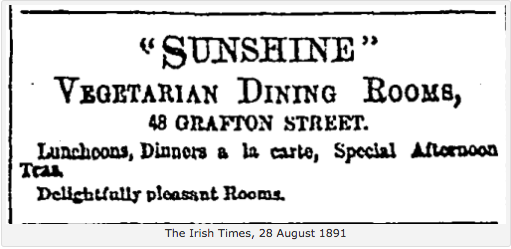Vegetarianism dates back to a time before recorded history. Most anthropologists agree that early humans ate a predominantly plant based diet, being more like gathers than hunters. This view is supported by the fact that the human digestive system resembles that of other plant-eaters, rather than that of meat eaters. Although prehistoric man ate meat, plants formed the basis of his diet.
The earliest records of vegetarianism as a concept and practice amongst a significant number of people concern ancient India, and the ancient Greek civilizations. In both instances the diet was closely connected with the idea of nonviolence towards animals, and was promoted by religious groups and philosophers. The famous Greek philosopher Pythagoras was an early promoter of the meatless diet. He believed that all living beings had souls, and animals were no exception. His principles influences generations of academics and religious thinkers, and it was a group of these like-minded individuals who founded the Vegetarian Society in England in the mid 1800s. The term ‘vegetarian’ was coined by the Vegetarian Society, the Latin root of the word referring to the source of life.
In the western world, the popularity of vegetarianism grew during the 20th century as a result of nutritional, ethical, and more recently environmental and economic concerns. The Indian concept of nonviolence also had a growing impact in the Western world. The model of Mahatma Gandhi, a strong and uncompromising advocate of nonviolence toward animals, contributed to the popularization of vegetarianism in Western countries. Today there are 375 million vegetarians worldwide.
Vegetarian Restaurants in Dublin date back to the late 19th century while groups of Vegetarians have been organising events in the city since at least the 1860s. The first Vegetarian restaurant in Dublin, the ‘Sunshine Vegetarian Dining Rooms‘, was located at 48 Grafton Street (now Vodafone) and was opened in March 1891 by the Dublin Vegetarian Society. According to the Irish Times the restaurant consisted of the most elegantly-decorated and tastefully-fitted apartments’, the restaurant served ‘toothsome food, free from the slightest suspicion of animal matter … at a surprisingly moderate rate’.

Resources
http://www.edu.pe.ca/sourishigh/Pages/Cmp6-03/Beth/Homepage/history_of_vegetarianism.htm
http://www.pbs.org/food/the-history-kitchen/evolution-vegetarianism/
Some notes on the history of Vegetarianism in Dublin Pt. I (1866 – 1922)
Leave a comment